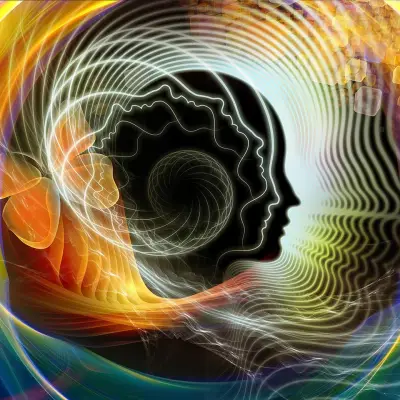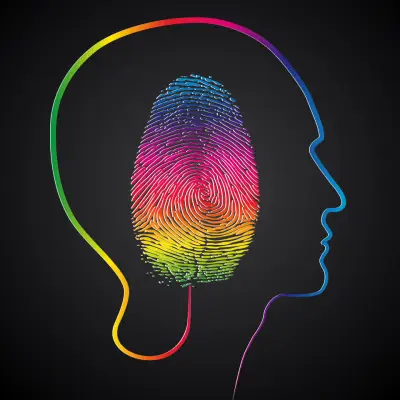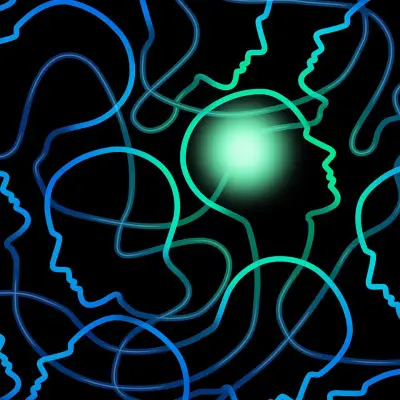Split personality disorder is a misunderstood condition, often enveloped in misconceptions and sensationalised by the media. If you or someone you know has symptoms that seem to indicate more than one distinct identity or personality, understanding the nuances of this disorder can be invaluable. In this post, we'll discuss split personality disorder — known clinically as Dissociative Identity Disorder (DID) — exploring its causes, signs, and the various treatments available.
Jump to:
- What Is Split Personality Disorder?
- Causes of Split Personality Disorder
- How Do You Know If Someone Has a Split Personality?
- Treatment Options for Dissociative Identity Disorder
- Can People with DID Live a Normal Life?
- Split Personality and Related Conditions
- Frequently Asked Questions About Split Personality Disorder
- Study DID Therapies for £29
What Is Split Personality Disorder?
The term "split personality disorder" is commonly used to describe what medical professionals refer to as Dissociative Identity Disorder (DID). This condition is characterised by the presence of two or more distinct personality states or identities within a single person, each with its own way of interacting with the world. These personalities may have their own names, histories, and mannerisms, making them distinct from the person's primary identity.
Recommended for you!
Best SellersCauses of Split Personality Disorder

DID most commonly stems from severe trauma during early childhood, usually extreme, repetitive physical, sexual, or emotional abuse. The development of different personalities or identities is thought to be a mechanism to cope with overwhelming stress or trauma. It's a way for someone to distance themselves from the pain of their experiences, with each identity possibly handling different stressors or memories.
How Do You Know If Someone Has a Split Personality?
Identifying DID can be challenging, as the signs vary widely from one person to another. However, some common symptoms include:
- Amnesia: One of the main signs of DID is experiencing significant amnesia. This involves substantial gaps in memory that pertain to everyday events, personal history, and particularly traumatic experiences. People with DID may find themselves unable to recall important personal information that should be impossible to forget. This might manifest as missing time, finding unfamiliar items in their possession, or having no memory of conversations or actions that others say they were part of.
- Detachment: Another key symptom is a persistent feeling of detachment, which can be quite disconcerting. People with DID often describe this as feeling disconnected from themselves and their emotions—like they're observers of their own lives rather than active participants. This detachment, also known as depersonalisation, might make them feel as though they are watching themselves in a film or dreaming about their life rather than living it. This can significantly impact their ability to connect with others and engage fully in day-to-day activities.
- Identity Confusion: DID involves ongoing confusion surrounding identity. People may struggle with who they are and can feel uncertain about their likes, dislikes, and life choices, which might change depending on which identity is in control at the time. This confusion can lead to distress and difficulty in maintaining a coherent sense of self, which is essential for navigating personal relationships and making life decisions.
- Distinct Identities: Perhaps the most striking symptom of DID is the presence of two or more distinct identities or personality states, each with its own perceivable traits and ways of interacting with the world. These identities may have their own age, sex, or race, and sets of abilities, preferences, and ways of viewing the world. They might also manage different aspects of life and have separate names. Each identity can control the person's behaviour at different times, often with little to no awareness of the other identities. This can lead to inconsistent behaviour, which might be confusing to others.
Treatment Options for Dissociative Identity Disorder

Effective treatment for DID typically involves psychotherapy, with the goal of integrating the multiple identities into one primary identity. Therapies may include:
1. Cognitive Behavioural Therapy (CBT)
CBT is a widely used therapeutic approach that helps patients manage problematic thoughts and feelings that can trigger or exacerbate dissociative symptoms. This type of therapy focuses on identifying and changing distorted thinking patterns, dysfunctional beliefs, and negative behaviours that can underlie and sustain mental health issues.
In the context of DID, CBT may help people recognise and challenge the thoughts that arise from their different identities, promote a greater sense of coherence, and reduce the psychological distress associated with switching between identities.
2. Dialectical Behaviour Therapy (DBT)
DBT is particularly effective for people who experience intense emotional disruptions, which is common among those with DID. This therapy combines standard cognitive-behavioural techniques for emotion regulation and reality-testing with concepts of distress tolerance, acceptance, and mindful awareness largely derived from Buddhist meditative practice.
DBT is structured around the idea of balancing acceptance of experiences with the need to change harmful patterns of behaviour. This can be incredibly beneficial in managing the sudden, intense emotions that may accompany the switching of identities in DID and in encouraging a greater integration of these identities.
3. Eye Movement Desensitisation and Reprocessing (EMDR)
EMDR is another therapeutic modality that has shown promise in treating trauma-related disorders, making it highly applicable to DID, which often stems from severe trauma. This therapy involves the patient recalling distressing images while receiving one of several types of bilateral sensory input, such as side-to-side eye movements or hand tapping.
EMDR facilitates the processing of frozen traumatic memories, allowing the individual to integrate these memories into their standard consciousness and reduce the dissociative symptoms. For those with DID, this could mean fewer triggers that activate alternate identities, leading to more stability and fewer disruptions in daily life.
Medications might be used to treat symptoms of depression or anxiety that often accompany DID, although there are no drugs specifically approved to treat the dissociative aspect directly.
Can People with DID Live a Normal Life?
Living with multiple personalities poses unique challenges, but people with DID can lead fulfilling lives, especially with the right support and treatment. Understanding and compassion from family, friends, and healthcare providers play an important role in managing the disorder. Engaging actively in therapy and maintaining a supportive network can greatly enhance the quality of life for those affected.
Split Personality and Related Conditions

It's common to wonder about the relationships between DID and other psychological conditions, such as bipolar disorder or narcissism. While DID can co-occur with these disorders, they are fundamentally different. Bipolar disorder involves shifts in mood, energy, and activity levels, but does not involve the creation of multiple distinct identities. Similarly, while those with narcissistic traits may seem to exhibit different personas, this is not the same as the distinct identities seen in DID.
Recommended for you!
Best SellersFrequently Asked Questions About Split Personality Disorder
Does Someone with DID Know They Have Multiple Personalities?
Awareness of multiple identities varies among people with DID. Some may be well aware of their different identities and can identify when a switch between identities occurs. Others may have little to no awareness of their other identities, only coming to realise they have lost time or are missing memories when confronted with evidence from their surroundings or other people.
Can Multiple Personalities Talk to Each Other?
In some cases, the distinct identities within a person diagnosed with DID can communicate with each other. This internal communication can range from cooperative to conflictual. Some therapeutic approaches, like Internal Family Systems (IFS), leverage this communication to promote healing and integration of the identities.
Are Multiple Personalities Aware of Each Other?
Awareness among multiple personalities varies. Some identities may be aware of each other and can even describe one another, while others may be completely unaware of the existence of other identities. The level of awareness can also change over time and with therapy.
Is Split Personality the Same as Bipolar Disorder?
Split personality, or DID, is not the same as bipolar disorder. While DID involves the presence of two or more distinct identities, bipolar disorder is characterised by extreme mood swings, including emotional highs (mania or hypomania) and lows (depression). The two disorders can co-occur but are fundamentally different in their symptoms and treatment approaches.
Is Split Personality a Narcissistic Trait?
Split personality is not a narcissistic trait. Narcissism, particularly in the context of narcissistic personality disorder, involves an inflated sense of self-importance and a deep need for excessive attention and admiration. Unlike DID, it does not include the presence of multiple distinct identities.
What Happens if Dissociative Identity Disorder is Left Untreated?
If DID is left untreated, it can lead to a range of complications, including severe depression, substance abuse, and suicidal thoughts or behaviours. Untreated DID can also lead to significant impairments in social and occupational functioning. Early and ongoing treatment can help manage symptoms and improve quality of life.
Do People with DID Hear Voices?
People with DID may hear voices, which are often attributed to their different identities. This is not the same as auditory hallucinations typically associated with disorders like schizophrenia. Instead, these voices are internal and represent the thoughts or presence of the other identities within the person’s mind.
Can You Love Someone with Split Personality?
Loving someone with DID involves understanding the complexities of the disorder and embracing all parts of the person. Patience, communication, and education about DID can strengthen the relationship and provide mutual support and understanding.
Study DID Therapies for £29
If you're interested in deepening your understanding of treating mental health issues like DID, consider exploring the Eye Movement Desensitisation and Reprocessing Therapy Diploma Course offered by Centre of Excellence. Currently available at a discounted price of £29, this course provides fascinating insights into this effective treatment and explores the theory behind the practice.













